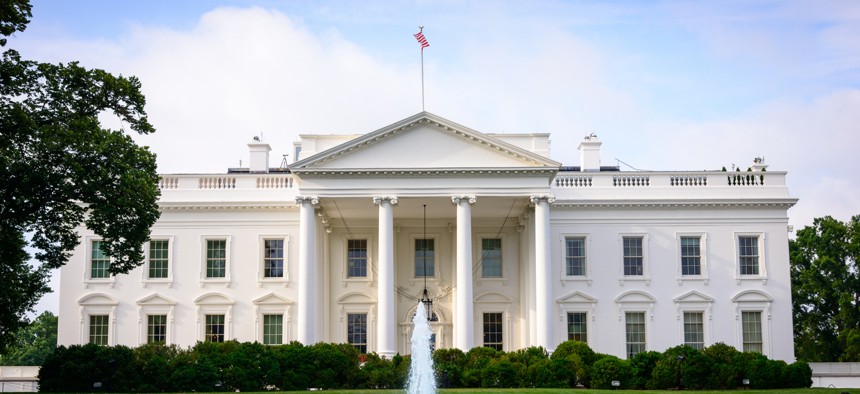
Shutterstock.com
White House Tells Agencies They Can Ignore Legal Decisions on Spending Violations
Findings from government's top watchdog that agencies spent illegally are not binding, the Office of Management and Budget says.
The White House instructed federal agencies they are under no obligation to comply with the legal decisions issued by the government’s top watchdog, saying in recent guidance the auditor’s rulings come from the legislative branch and are therefore not binding on the executive branch.
Agencies can ignore the direction provided to them by the Government Accountability Office when the watchdog finds they violated spending law, Mark Paoletta, general counsel at the Office of Management and Budget, said in a memorandum dated Nov. 5. He explained that GAO, as a legislative branch agency, cannot make demands that executive branch agencies notify Congress about their violations of the Antideficiency Act. Doing so, he said, would upend the constitutional separation of powers principle. The Antideficiency Act prohibits executive branch officials from spending appropriated funds in ways not approved by Congress and tasks GAO with enforcing its provisions. Agencies must report violations that GAO identifies to Congress.
“When an agency of the legislative branch interprets a law differently than the executive branch, the executive branch is not bound by its views,” Paoletta said. “ADA reporting requirements should reflect this principle.”
The memo followed recent findings by GAO that the departments of Interior and Agriculture both violated the ADA. The cases surrounded an unusual decision by the Trump administration during the record-setting government shutdown earlier this year instructing agencies to continue funding a variety of functions typically suspended during a lapse in appropriations.
As the shutdown dragged on and agencies were increasingly strained by a lack of resources, the administration diverted funds from their normal purposes to mitigate its impact. In one legal decision, GAO said the Interior Department violated the Antideficiency Act when it used recreation fees collected by the National Park Service to keep parks open and continue services such as trash collection and restroom maintenance. In another, GAO faulted the Agriculture Department for disbursing Supplemental Nutrition Assistance Program benefits early during the shutdown. In both cases, GAO warned that further infractions would result in fines and possible jail time. In October, GAO found the Treasury Department also violated the ADA during the shutdown for processing tax returns and issuing refunds. The watchdog similarly directed Treasury to notify Congress and threatened future imprisonment.
In his memo, Paoletta said OMB “respects GAO’s opinions as those of an agency of a coequal branch of government,” but a legal decision from the legislative branch constitutionally “cannot bind” the executive branch. Congress is not at risk of not learning about the spending violations, he added, because GAO already reports its findings directly to lawmakers. His memo also followed an OMB update to Circular A-11—which sets guidance for agencies on the budgeting process—that clarified agencies do not have to report violations of the ADA if the administration does not agree the spending was illegal.
While Congress is free to ask for agencies’ views on GAO reports, Paoletta said, they only have to report a spending violation if the agency itself finds that such an infraction occurred. In its prior rulings, GAO said the violating agencies “must” report their infractions to Congress. The OMB official cited a 2005 Justice Department opinion to support his interpretation of the law.
In response to OMB's changes to the budget document, GAO sent a letter of its own to agency counsels warning if they failed to notify Congress of ADA violations, GAO would issue the notifications itself and note the failure to report. OMB's policy update is "a departure from longstanding guidance to agencies," GAO General Counsel Thomas Armstrong wrote in September, while noting the ADA "serves to protect and underscore Congress’s constitutional prerogatives of the purse."
Asked to comment on Paoletta’s letter, a GAO spokeswoman said the watchdog agency’s “position remains the same.” The disagreement could soon come to a head in a particularly high-profile way, as The Wall Street Journal has reported GAO is currently investigating whether the administration's temporarily withholding of aid to Ukraine—a decision at the center of the impeachment probe of President Trump—violated the Antideficiency Act.
The administration also recently clashed with GAO after the watchdog agency said OMB could not pause international aid funding until it expired. The Trump administration has rebuffed the watchdog on multiple occasions.
This story has been updated. Also, the original headline was changed to indicate that the White House said agencies may ignore GAO's legal decisions, they are not instructed to ignore them.







